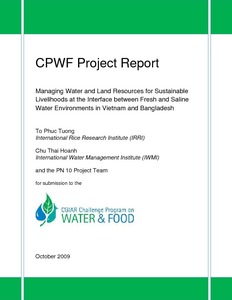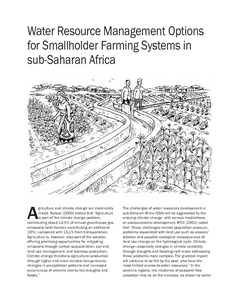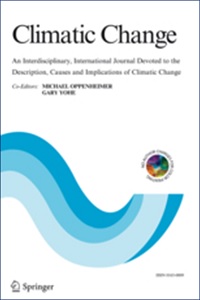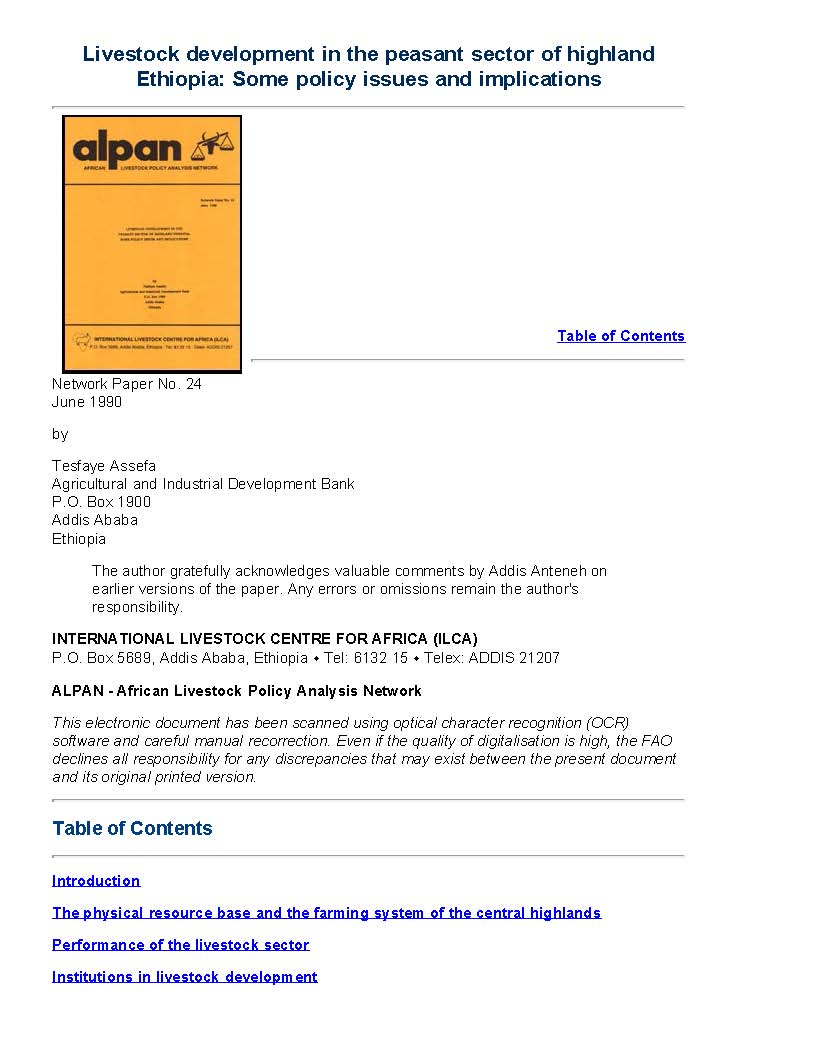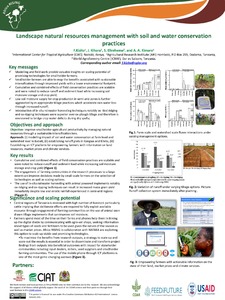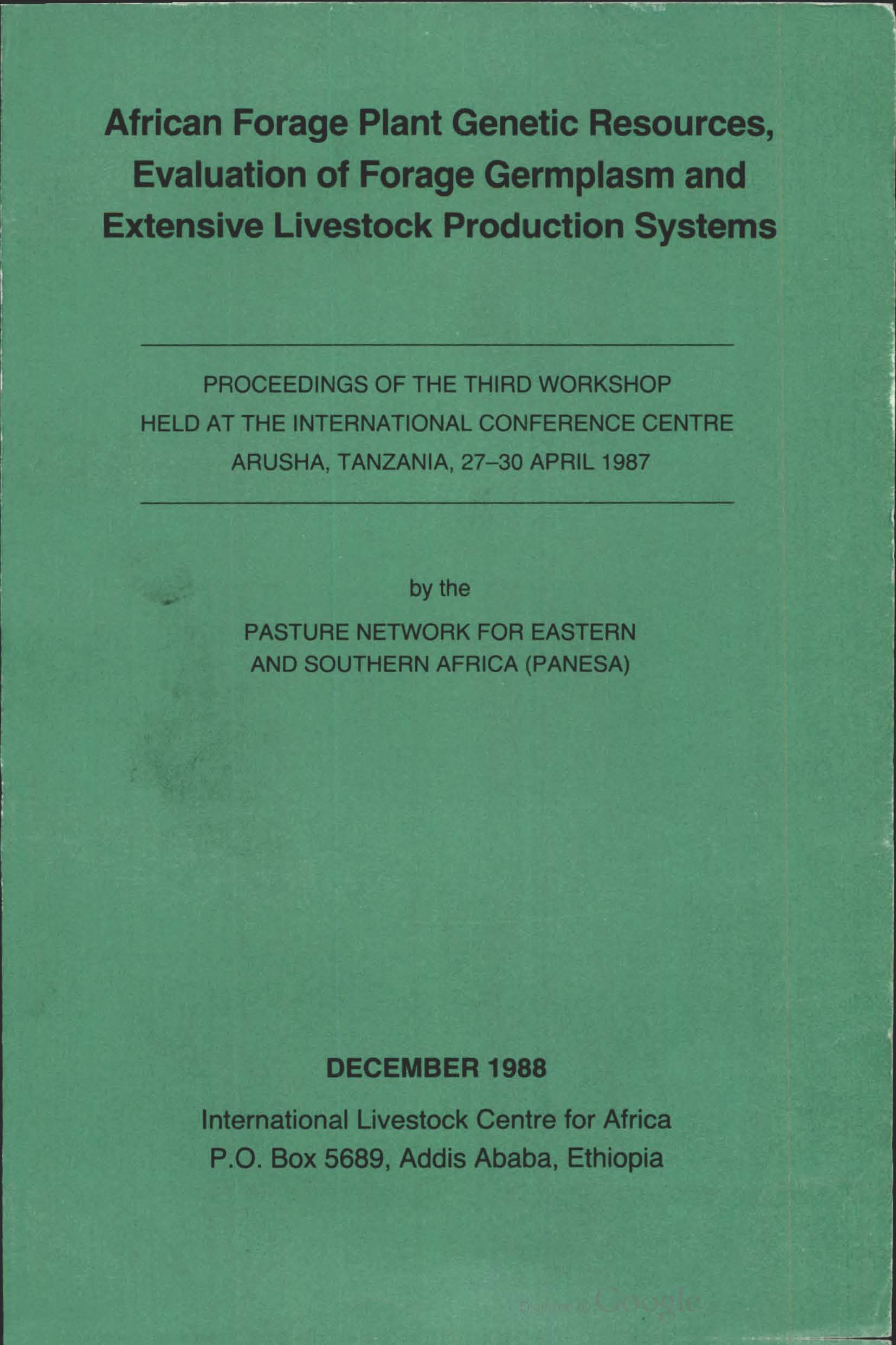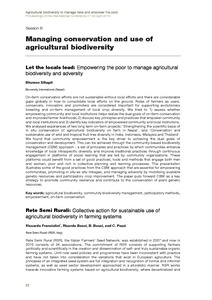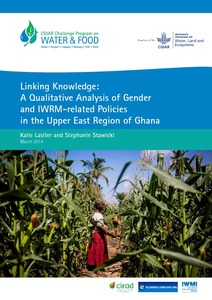système d'exploitation agricole
AGROVOC URI:
Managing water: Water resource management options for smallholder farming systems in sub-Saharan Africa
Mapping adaptive capacity and smallholder agriculture: applying expert knowledge at the landscape scale
The impacts of climate change exacerbate the myriad challenges faced by smallholder farmers in the Tropics. In many of these same regions, there is a lack of current, consistent, and spatially-explicit data, which severely limits the ability to locate smallholder communities, map their adaptive capacity, and target adaptation measures to these communities.
Livestock development in the peasant sector of highland Ethiopia: Some policy issues and implications
Generally discusses policy and institutional issues related to the topic in post-revolution Ethiopia. The first part of the paper summarizes the physical resource base and the farming systems of the central highlands. Part two highlights the performance of the livestock sector and provides a very brief picture of the institutions involved in livestock development in these institutions with particular reference to the dairy sector. The third part surveys livestock investments made available by government, non-government organizations and formal credit institutions.
Legume-based cropping. A possible remedy to land tenure constraint to ruminant production in the subhumid zone of central Nigeria
Length of Growing Period over Africa: Variability and Trends from 30 Years of NDVI Time Series
The spatial distribution of crops and farming systems in Africa is determined by the duration of the period during which crop and livestock water requirements are met. The length of growing period (LGP) is normally assessed from weather station data—scarce in large parts of Africa—or coarse-resolution rainfall estimates derived from weather satellites. In this study, we analyzed LGP and its variability based on the 1981–2011 GIMMS NDVI3g dataset. We applied a variable threshold method in combination with a searching algorithm to determine start- and end-of-season.
Limpopo Basin Development Challenge
Limpopo Basin
The Limpopo is a relatively dry basin and most water in the more productive areas is already claimed. Rainfall is highly variable and in many parts of the basin there is little run-off with which to produce crops and livestock. The basin is a water-scarce environment in which recurring drought and floods cause devastating impacts on the livelihoods of small-scale, subsistence farmers. However, the more pressing development challenge in these farming systems is the unproductive use of water in the more normal rainfall seasons which are much more prevalent.
Linking Knowledge: A Qualitative Analysis of Gender and IWRM-related Policies in the Upper East Region of Ghana
While this study was originally conducted to gather baseline data on the general activities, issues, and concerns of women in the Upper East Region in northern Ghana, the initial data collection led to the discovery that women in the Upper East Region are organized, either by their own accord or through the recommendation of local governing bodies, in social groupings that fulfill specific needs such as access to credit, access to agricultural inputs, and access to reciprocal labor and support.
La recherche sur les systemes agraires ("RSA") au CIPEA
Discusses the historical context of ILCA's research, the principal types of animal production systems and the stages in ILCA's farming systems research. Describes the smallholder farming in the Ethiopian highlands & humid zone, the agropastoralists of the sub-humid zone, systems research in pastoral areas of eastern Africa (Kenya & Ethiopia), characteristics of the arid and semi-arid zones of West Africa and the role of modelling in the system. Ends with a summary of past experience.

